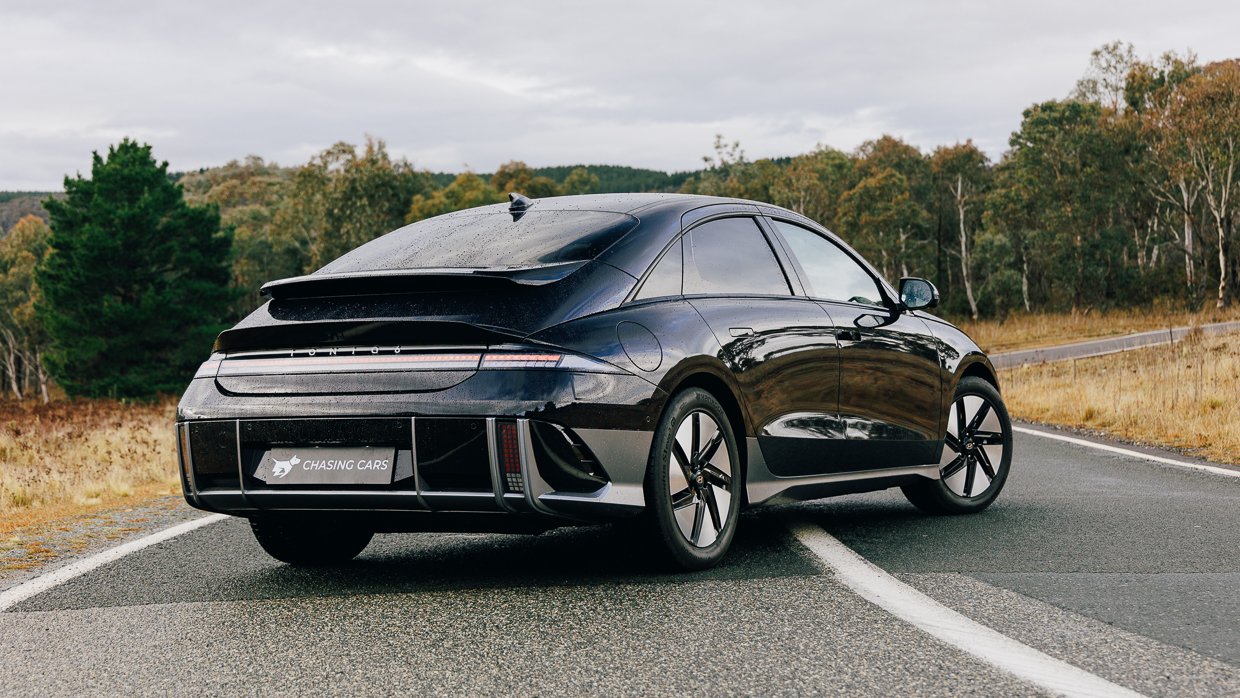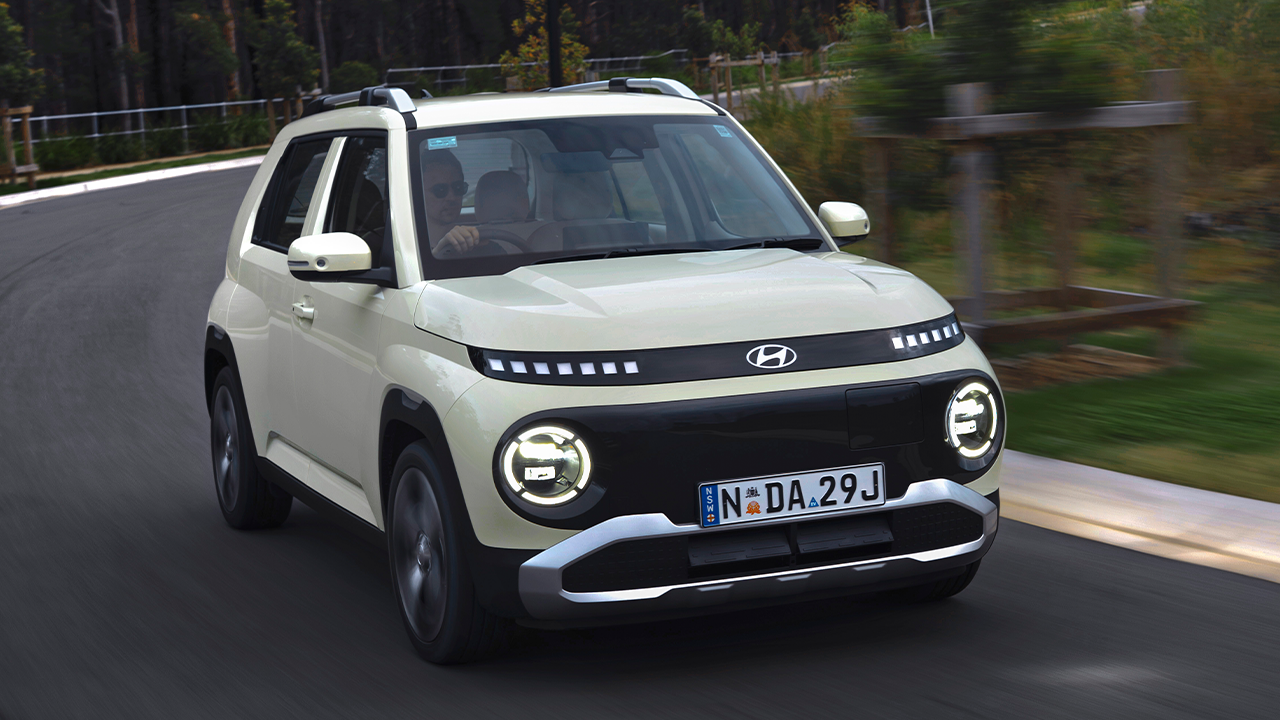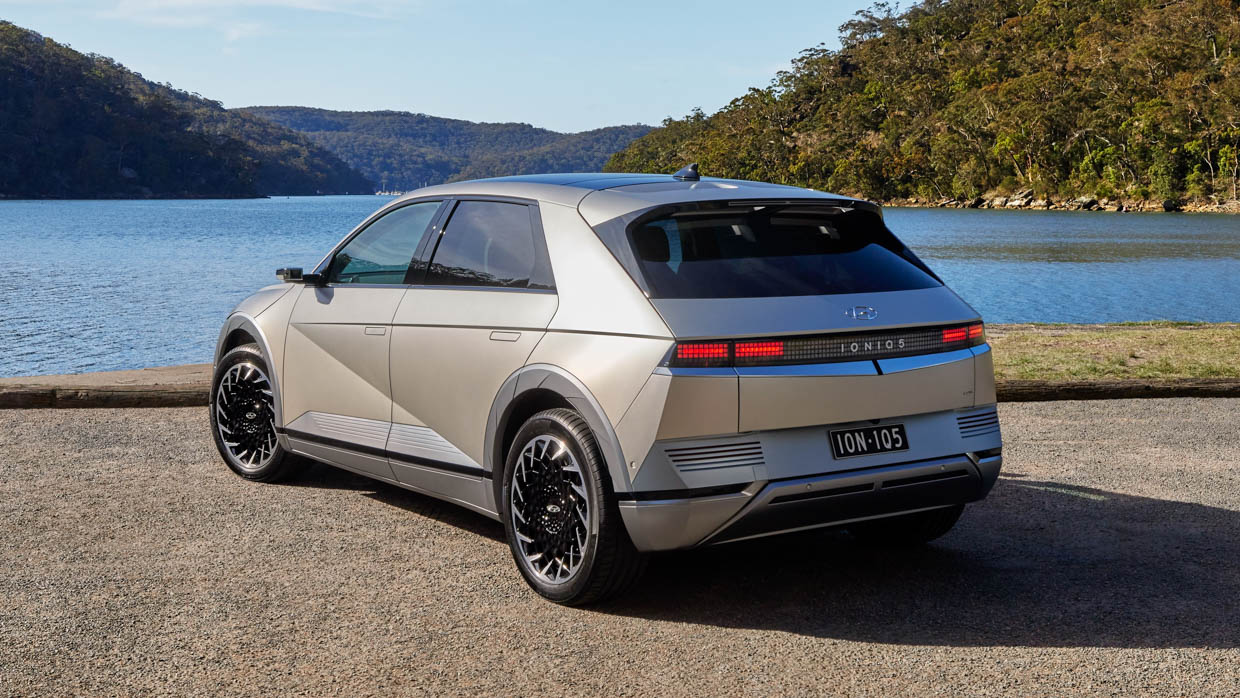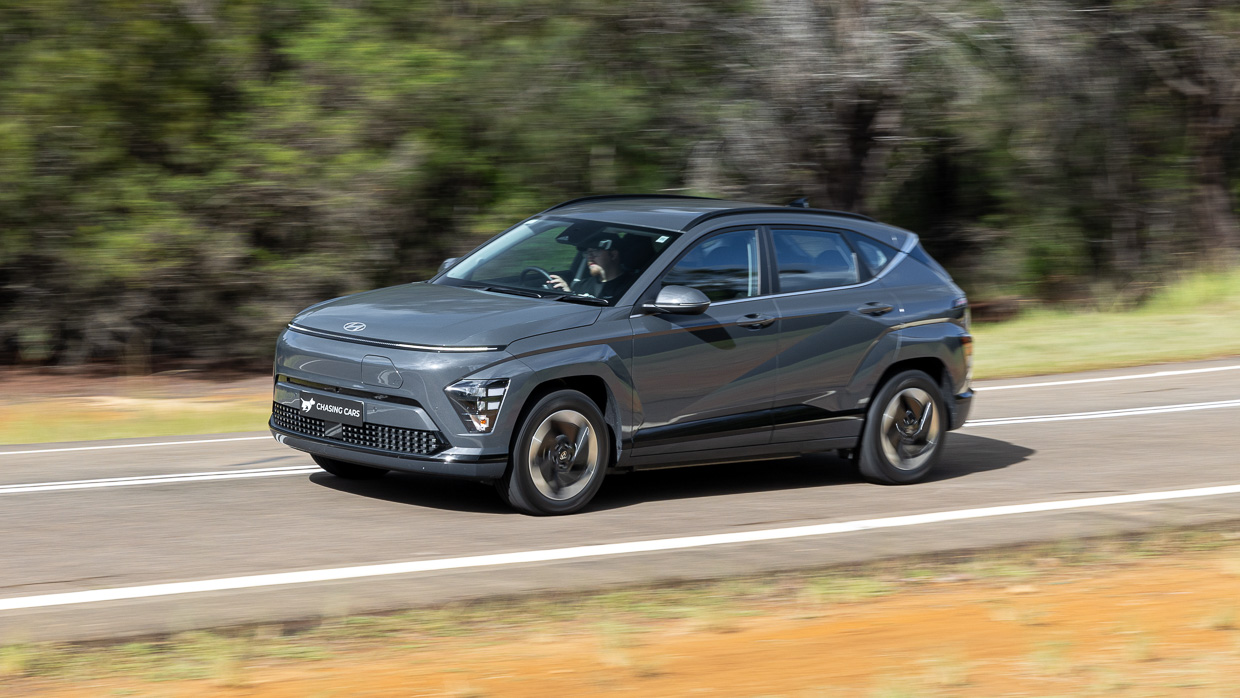-
Car Reviews
- All reviews
- Midsize SUVs
- Small cars
- Utes
- Small SUVs
- Large SUVs
- Large cars
- Sports SUVs
- Sports cars
- Vans
Latest reviews
- Car News
-
Car Comparisons
Latest comparisons
- Chasing Deals
New and existing Hyundai electric models have received huge price reductions to clear stock
Hyundai has slashed electric car prices by up to $34,000 for existing 2023 stock, and up to $9700 for new electric models, effective immediately.
The greatest price reductions apply to existing pre-facelift MY23 Ioniq 6 models. Starting with the Ioniq 6 Dynamic, reduced from $77,554.02 to $49,990 drive-away – a saving of $27,564.02.
The MY23 Ioniq 6 Techniq has been slashed from $88,579.02 to $54,990 drive-away (save $33,589.02), while the range-topping Epiq sees a reduction of $34,142.02 – now just $59,990 drive-away (was $94,132.02).
Now two years old, MY23 Ioniq 6 models contend with China-made mid-size rivals including the ever-popular Tesla Model 3 ($54,900), BYD Seal ($46,990) and Polestar 2 ($62,400).
Hyundai has additionally confirmed it will reduce the price of select small electric vehicles, with reductions of around $9,780 applying to new stock effective now until otherwise stated.
Savings begin with the Hyundai Inster. The Standard Range has been reduced by over $3300, Extended Range by beyond $3900, and range-topping Cross cut by a little more than $3500. These models are now priced from $39,990, $42,990, and $45,990, respectively (all drive-away).
That model is now more competitive with Chinese compact electric models, predominantly the $38,990 MG4, and $29,990 BYD Dolphin – Australia’s cheapest electric vehicle.
Both prices above are before on-roads.
Hyundai’s second largest price reduction on new stock will apply to the Kona Electric, reduced to $49,990 drive-away in Standard Range guise (a saving of $9,189.02), while the largest price reduction applies to the Ioniq 5 Standard Range – reduced by $9,779.02, now $65,990 drive-away.
The Kona Electric rivals the BYD Atto 3 ($39,990) and $40,490 MG S5 (both prices before on-road costs) while the Larger Ioniq 5 is a competitor to Australia’s most popular electric cars, the Tesla Model Y ($58,900), BYD Sealion 7 ($54,990) and Kia EV5 ($56,770, prices listed before on-road costs).
The huge cuts to new and existing electric vehicle stock will aid Hyundai in securing much needed NVES credits, as the company prepares for even tighter emissions regulations to roll out in 2026.
Currently, vehicle manufacturers are penalised for each gram of CO2/km produced over a set limit of 141g/km for Type 1 vehicles (passenger cars) or 210g/km for Type 2 vehicles (light commercial vehicles).
These limits will tighten further in 2026 – 117g/km for Type 1, and 180g/km for Type 2.
Latest news
About Chasing cars
Chasing Cars reviews are 100% independent.
Because we are powered by Budget Direct Insurance, we don’t receive advertising or sales revenue from car manufacturers.
We’re truly independent – giving you Australia’s best car reviews.



